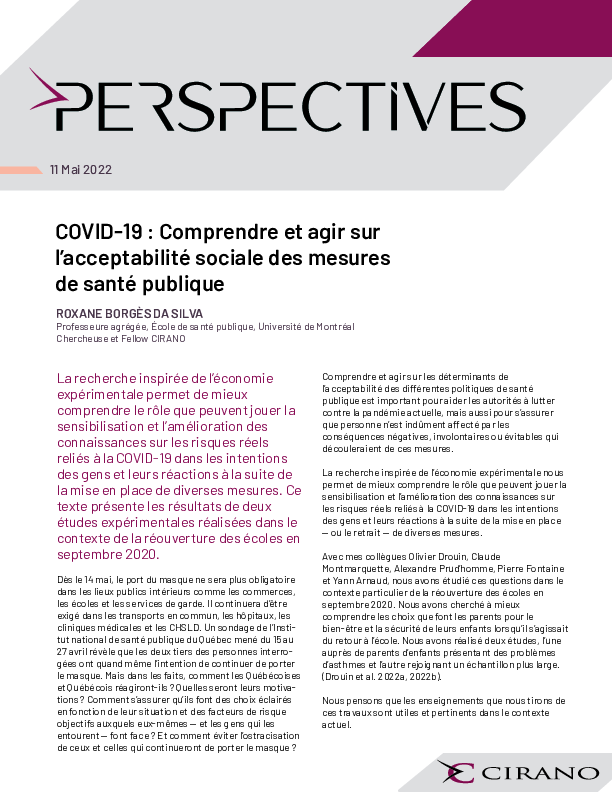COVID-19 : Comprendre et agir sur l’acceptabilité sociale des mesures de santé publique
As of May 14, masks will no longer be required to be worn in indoor public places such as businesses, schools and daycares. It will continue to be required in public transportation, hospitals, medical clinics and CHSLDs. A survey conducted by the Institut national de santé publique du Québec from April 15 to 27 shows that two-thirds of respondents still intend to continue wearing the mask. But in reality, how will Quebecers react? What will be their motivations? How can we ensure that they make informed choices based on their circumstances and the objective risk factors they - and those around them - face? And how do we avoid the ostracization of those who will continue to wear the mask?
Research inspired by experimental economics provides insight into the role that awareness and improved knowledge of the real risks associated with COVID-19 can play in people's intentions and reactions following the implementation - or removal - of various measures. This short text presents the results of two experimental studies conducted in the specific context of the reopening of schools in September 2020.
These studies allow us to draw two main conclusions about the social acceptability of health measures and individual choices in the face of the pandemic:
- It is essential to provide valid, accurate, and simple sources of information to inform and reassure the population about the risks of developing COVID-19, without causing "cognitive overload."
- Simple awareness tools, clear and evidence-based information can have an impact on people's perceptions and choices when it comes to their health or that of their loved ones.




